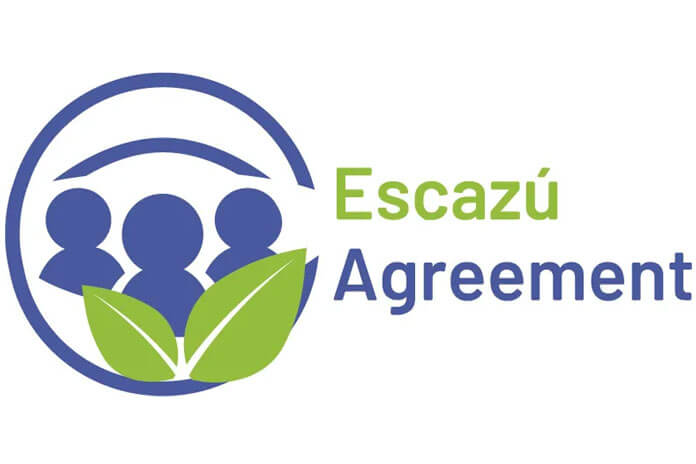SANTIAGO, Chile, Wed. Apr. 20, 2022– Latin America and the Caribbean have made a huge step forward in the advancement of human and environmental rights this week with the First Meeting of the Conference of Parties to the Escazú Agreement (COP1). The Escazú Agreement, also known as the Regional Agreement on Access to Information, Public Participation, and Justice in Environmental Matters in Latin America and the Caribbean, was first adopted in September 2018 and is the first-ever environmental treaty to be signed in the region. The agreement was drafted to serve as a tool for the protection of human rights and the environment throughout the region.
The conference, which is being inaugurated by the president of Chile, Gabriel Boric, will take place from April 20 to 22 at the headquarters of the Economic Commission of Latin America and the Caribbean (ECLAC) in Santiago, and its participants will discuss progress on the implementation of the Agreement as well as future steps that will be taken to make it operational.
“The Escazú Agreement comes into being as a response to the urgent needs of our region, which regrettably has become the most dangerous area in the world for environmental defenders. And it embodies deep desires on the part of the peoples living in this corner of the Global South: desires for peace, desires for justice, desires for decisive action amid the climate crisis and the environmental degradation that we are facing,” remarked President Boric on day one of the conference.
“Either we save ourselves together, or we sink separately,” he added, pledging that Chile will be working alongside other Latin American nations to face the climate crisis and enact climate justice.
According to UNICEF, Latin America and the Caribbean severely lack mechanisms for transparency and access to environmental information. Just recently, in March of this year, an audit done by OCEANA found that Belize is highly lacking when it comes to transparency in regards to the fisheries industry and sustainable fishing.
Additionally, our region has one of the highest incidences of crimes against environmental activists and defenders, with 148 out of the total 202 crimes committed against them in 2019 having occurred in Latin America and the Caribbean. In 2020, 277 lethal crimes were recorded worldwide, with the highest number of incidents being seen in Colombia, Honduras, Nicaragua, and Mexico.
“[Defenders are] at risk because they find themselves living on or near something that some corporation is demanding. That demand—the demand for the highest possible profit, the quickest possible timeline, the cheapest possible operation—seems to translate eventually into the understanding, somewhere, that the troublemaker must go,” stated American environmentalist Bill McKibben in a 2020 Guardian article on the increased killings of climate activists.
Over the years, mounting evidence has shown that as the climate crisis intensifies, acts of violence against those who seek to protect their land—and the planet—have continued to increase. The Escazú Agreement seeks to address this, providing protection and justice for those taking a stand against environmental exploitation.
“It has become clear that the unaccountable exploitation and greed driving climate crisis is also driving violence against land and environmental defenders,” wrote reporters from the International NGO, Global Witness.
In addition to guaranteeing that the rights of environmental defenders are protected, the Agreement also is aimed at ensuring that the rights of indigenous peoples and local communities are respected, since attacks against indigenous peoples have also been on the increase.
Since its introduction in 2018 in Escazú, Costa Rica, a total of 24 countries—including Belize—have signed the Agreement, with eleven of those countries having both signed and ratified it. It has been hailed as a milestone for environmental and human rights issues in the region, and the COP1 meeting held this Wednesday was referred to as “a significant demonstration of the value of multilateralism and regional cooperation” by the ECLAC.
During the opening of COP1, the acting Executive Secretary of ECLAC, Mario Cimoli, spoke on the fact that the Escazú Agreement includes the world’s first provision for human rights defenders in environmental matters, calling it “an instrument for social transformation and the deepening of democracy.”
As the region continues to face threats of pollution, the climate crisis, environmental degradation, and inequality, the Escazú Agreement will, hopefully, allow the future generations of Latin America and the Caribbean to enjoy their right to a healthy environment and sustainable development and to even play a role in maintaining that healthy environment.

